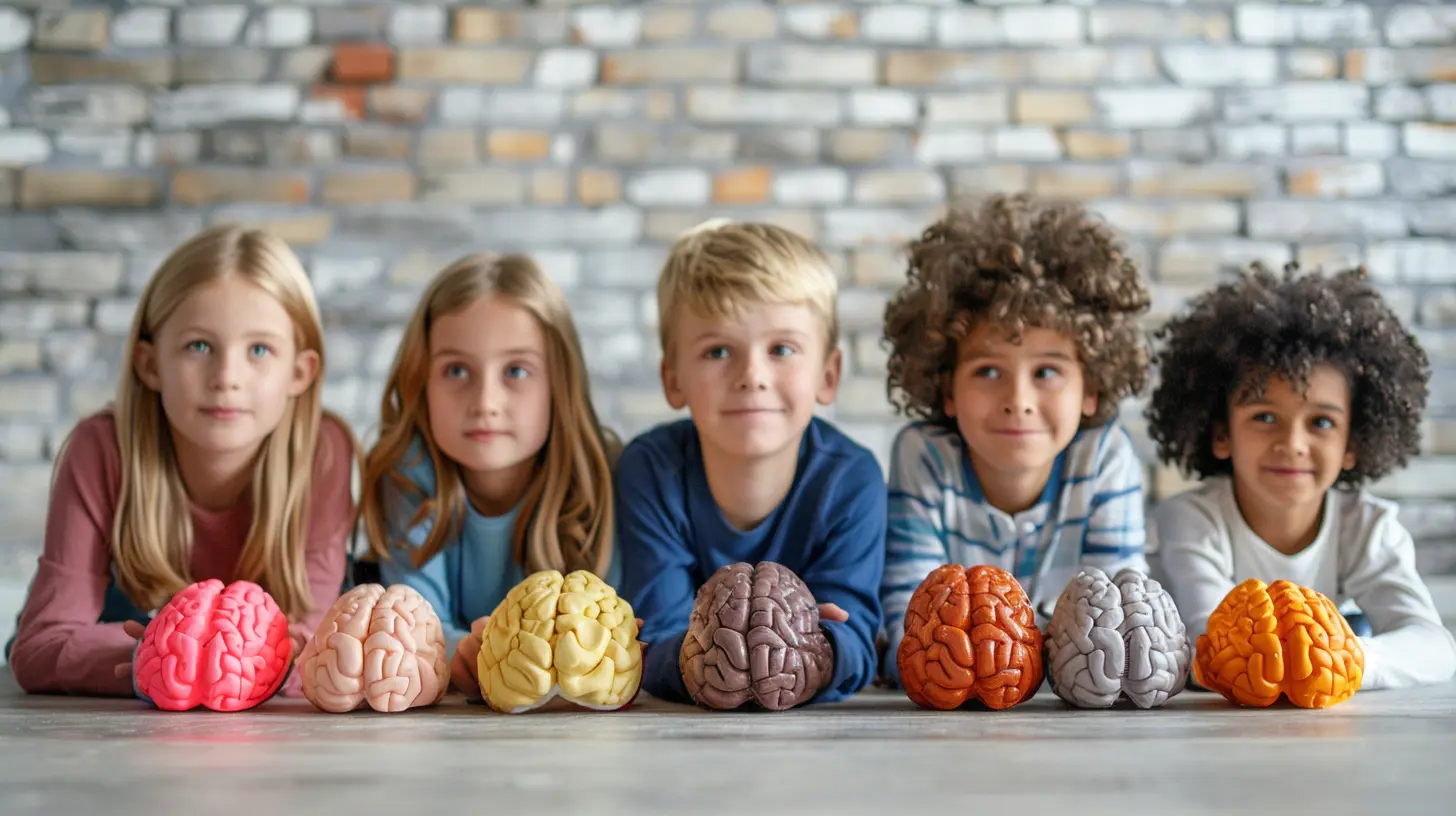How to Support Cognitive Growth During School Transitions
15 June 2025
Starting school, moving to a new grade, or transitioning to a different learning environment can be an overwhelming experience for children. These transitions are pivotal moments that not only shape academic success but also play a key role in cognitive development. But how can we, as parents, teachers, and guardians, ensure that kids are mentally equipped for these changes?
In this article, we'll break down practical ways to support cognitive growth during school transitions, making sure that children not only adjust but also thrive academically and emotionally.

Understanding Cognitive Growth During School Transitions
Cognitive growth refers to how children develop thinking, problem-solving, and reasoning skills. As students move from one academic stage to another, they face new challenges requiring them to adapt, process information differently, and develop stronger critical thinking abilities.Transitions—whether it’s moving from kindergarten to primary school, middle school to high school, or even shifting from traditional to online learning—can be stressful. Each stage demands new cognitive skills, including:
- Memory recall and organization – Remembering new concepts, schedules, and classroom procedures.
- Problem-solving abilities – Adapting to more complex subjects and independent learning.
- Emotional regulation – Managing anxiety, uncertainty, and social adjustments.
Now, let’s dive into how we can support kids in these critical areas.

1. Encourage a Growth Mindset
Ever heard the phrase, "I can’t do this"? It’s a common reaction from children facing unfamiliar academic challenges. The key here is mindset.Supporting cognitive growth during school transitions starts with fostering a growth mindset—the belief that intelligence and skills can improve with effort. Instead of saying, “I’m just not good at math,” encourage kids to say, “I can get better at math with practice.”
How to Promote a Growth Mindset:
- Praise effort rather than just intelligence. (“You worked really hard on that!”)- Teach kids that mistakes are part of learning, not failure.
- Use encouraging language like, “You’re not there yet, but you will be.”
A growth mindset helps children approach school transitions with confidence rather than fear.

2. Create a Stable Routine
When kids are transitioning to a new school or grade, their world can feel chaotic. Having a reliable routine provides a sense of stability and predictability—things the brain craves when processing new experiences.Practical Tips to Build a Supportive Routine:
- Stick to consistent wake-up and bedtime schedules – A well-rested brain absorbs information better.- Plan structured study sessions – Help children organize their homework with a study schedule.
- Encourage reflection time – Have daily check-ins to discuss how they’re feeling about school.
Balancing structure with flexibility allows kids to feel secure while adapting to change.

3. Strengthen Executive Functioning Skills
Executive functioning skills are the brain’s control center—they help with planning, organization, and emotional regulation. During transitions, these skills are put to the test as students navigate new expectations.Ways to Boost Executive Function:
- Use checklists and planners – Help students break down tasks step by step.- Introduce time management strategies – Timer-based study sessions (like the Pomodoro Technique) can improve focus.
- Encourage self-monitoring – Teach kids to set goals and reflect on their progress.
When kids improve their ability to plan and organize, they handle school transitions with greater ease.
4. Foster Emotional Resilience
Let’s be real—change can be stressful. The uncertainty of a new school or grade can trigger anxiety and self-doubt. Cognitive and emotional growth go hand in hand, so helping children build emotional resilience is crucial.How to Help Kids Manage Stress:
- Encourage open conversations – Ask questions like, “What’s been the hardest part of the transition for you?”- Teach mindfulness techniques – Simple deep-breathing exercises can ease nervousness.
- Normalize seeking help – Let kids know that asking for support is a strength, not a weakness.
A mentally strong child is better equipped to focus on academics and adjust to change.
5. Promote Curiosity and Critical Thinking
Children learn best when they’re actively engaged in their education. Sparking curiosity encourages cognitive growth by making learning more meaningful.Ways to Cultivate Curiosity:
- Ask "why" and "how" questions – Instead of just memorizing facts, encourage kids to explore the reasoning behind them.- Connect learning to real-life experiences – Show how math, science, and language skills apply to everyday situations.
- Encourage independent problem-solving – Guide children toward figuring things out on their own rather than giving instant answers.
Curious learners naturally develop deeper cognitive skills, making school transitions smoother.
6. Support Cognitive Growth Through Play
Believe it or not, play isn’t just for fun—it’s one of the most effective ways to boost cognitive development. Games, puzzles, and creative activities strengthen important brain functions like memory, attention, and problem-solving.Brain-Boosting Activities:
- Board games – Help improve strategic thinking and decision-making.- Storytelling and reading – Expand vocabulary and comprehension skills.
- Building and crafting – Encourage spatial awareness and creativity.
Integrating play into learning provides a stress-free way to enhance cognitive skills during transitions.
7. Encourage Social Engagement
Making new friends, adjusting to different teachers, and finding a sense of belonging—social interactions play a big role in cognitive development.How to Boost Social Learning:
- Encourage participation in school clubs or extracurricular activities.- Teach conversation and friendship-building skills through role-playing scenarios.
- Support collaborative learning where students work on projects with peers.
When kids feel socially connected, they are more likely to enjoy school and stay motivated.
8. Monitor and Adjust Expectations
Every child adjusts at their own pace. Some may embrace change quickly, while others need extra time and reassurance. The key? Patience and flexibility.Supporting Individual Learning Needs:
- Communicate with teachers to identify academic strengths and challenges.- Adjust expectations based on how a child is coping—don’t pressure them to “get it right” immediately.
- Celebrate small victories to build confidence.
Giving kids the space to adapt ensures a smoother transition without unnecessary stress.
Final Thoughts
School transitions can be tough, but they also present valuable growth opportunities. By fostering a growth mindset, creating stability, strengthening executive function, and nurturing curiosity, we can help children navigate these changes with confidence.Remember, cognitive development isn’t just about academic success—it’s about preparing kids for the challenges life will throw their way. So, whether it’s their first day in a new school or a step up to the next grade, your support can make all the difference in their journey.
all images in this post were generated using AI tools
Category:
Cognitive DevelopmentAuthor:

Jenna Richardson
Discussion
rate this article
2 comments
Graham Frye
“Supporting cognitive growth during school transitions is like upgrading your brain’s operating system—just make sure to avoid the dreaded ‘blue screen of stress!’ With a dash of patience and a sprinkle of encouragement, you’ll have those neurons firing like a well-oiled machine!”
October 13, 2025 at 4:01 PM

Jenna Richardson
Thank you for the creative analogy! I love the idea of viewing cognitive growth as an upgrade process—patience and encouragement truly are key during these transitions!
Liam Pruitt
Embrace the power of transitions! Supporting cognitive growth during these pivotal moments fosters resilience and adaptability in students. With the right guidance and encouragement, we can empower young minds to thrive and flourish in their educational journeys!
June 23, 2025 at 2:56 PM

Jenna Richardson
Thank you for your insightful comment! Embracing transitions is indeed crucial for fostering resilience and adaptability in students. Your emphasis on guidance and encouragement aligns perfectly with our goal of supporting cognitive growth during these pivotal moments.


